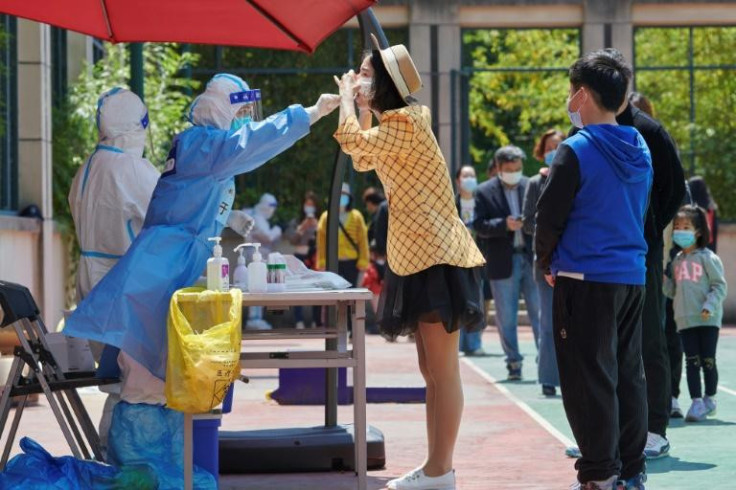Panic buying in Beijing as authorities order mass testing in Chaoyang district
The authorities' decision to conduct mass testing has sparked fears of a lockdown.
The residents of China's capital city, Beijing, were seen flocking to markets on Monday to stock up on food and other essential supplies in case the Chinese government imposes a Shanghai-style lockdown.
This comes after the city reported an increase in Covid-19 cases, it reported 19 cases on Monday, including 14 symptomatic cases. "The current outbreak in Beijing is spreading stealthily from sources that remained unknown yet and is developing rapidly," a municipality official told The Guardian.
The authorities also mandated three Covid tests a week for the residents of Chaoyang district in Beijing after area recorded 26 of Beijing's 47 symptomatic cases. Several buildings in Chaoyang have also been put under lockdown to prevent the virus from spreading.
I was surprised by @LiuXininBeijing’s candid tweet showing her stocking up in preparation for lockdown and empty shelves from a Beijing supermarket. And not surprised it was deleted it and replaced with a happy photo of the fully stocked shop a day after. pic.twitter.com/fTjiHNRwki
— 杨涵 Han Yang (@polijunkie_aus) April 25, 2022
As seen on Weibo: Shanghai residents go to their balconies to sing & protest lack of supplies. A drone appears: “Please comply w covid restrictions. Control your soul’s desire for freedom. Do not open the window or sing.” https://t.co/0ZTc8fznaV pic.twitter.com/pAnEGOlBIh
— Alice Su (@aliceysu) April 6, 2022
People were seen crowding stores and supermarkets to stock up on essential items including vegetables, meat, instant noodles and rolls of toilet paper. The authorities have also extended the operating hours of the stores that sell essential supplies.
The fear amongst the residents of Beijing is justified after what Shanghai residents have had to endure in the last few weeks. Many inhabitants of the city had flooded social media with complaints of food shortages, spartan quarantine conditions and heavy-handed enforcement.
Around 25 million people still remain locked down in China's largest city and financial centre, as authorities try to snuff out the country's most severe virus outbreak since the end of the first pandemic wave in early 2020.
The officials have scrambled in recent weeks to contain cases spanning multiple regions, largely driven by the fast-spreading Omicron variant. China's zero-Covid strategy has come under extreme pressure now with authorities hoping to avoid a repeat of events in Shanghai.
The severe restrictions imposed on Shanghai led to a major food shortage in the city and a delay in deliveries. The citizens had to take to social media to share their complaints. The city still remains the epicentre of China's worst outbreak since Wuhan in 2019. It reported 19,455 new cases and 51 deaths on Sunday.

© Copyright IBTimes 2025. All rights reserved.






















